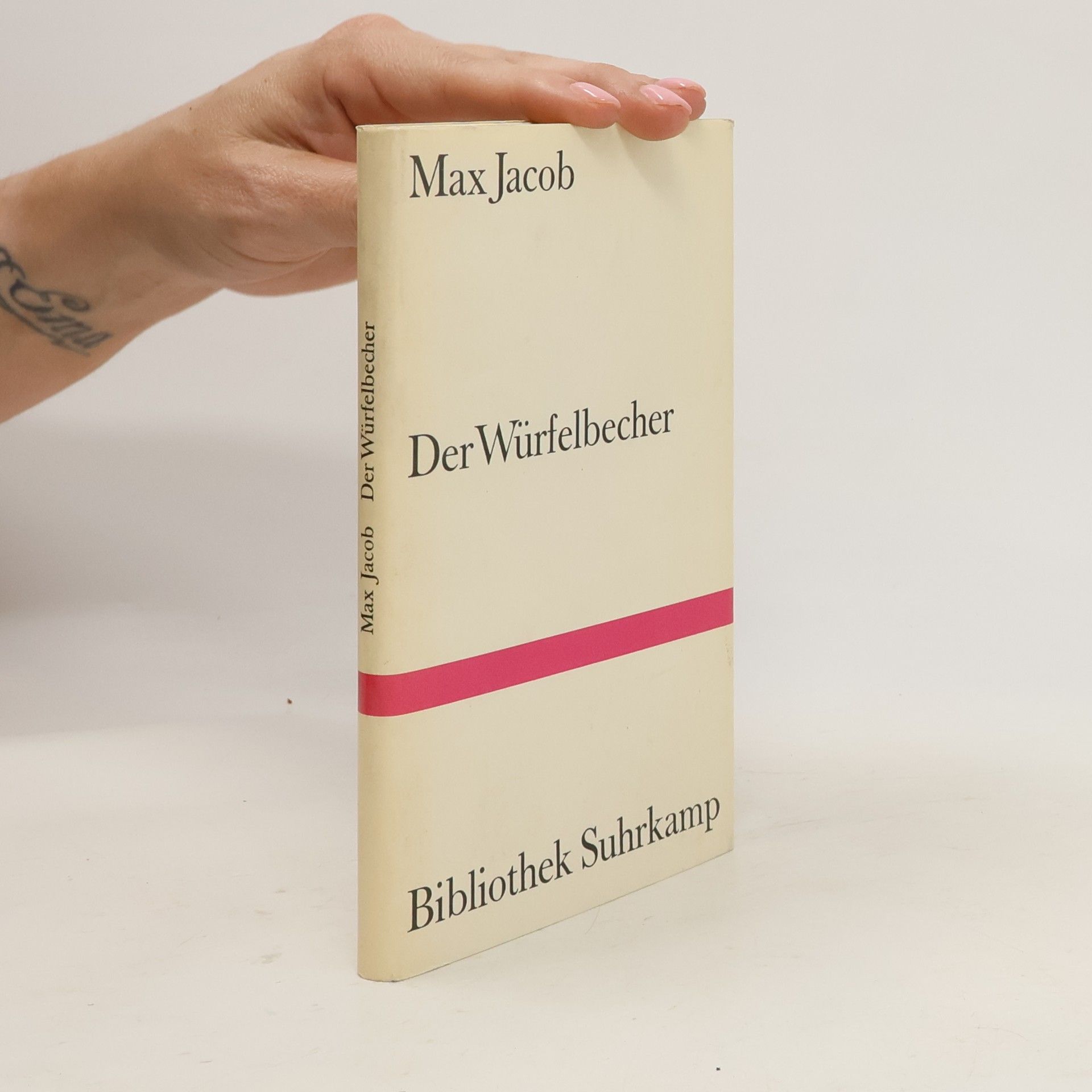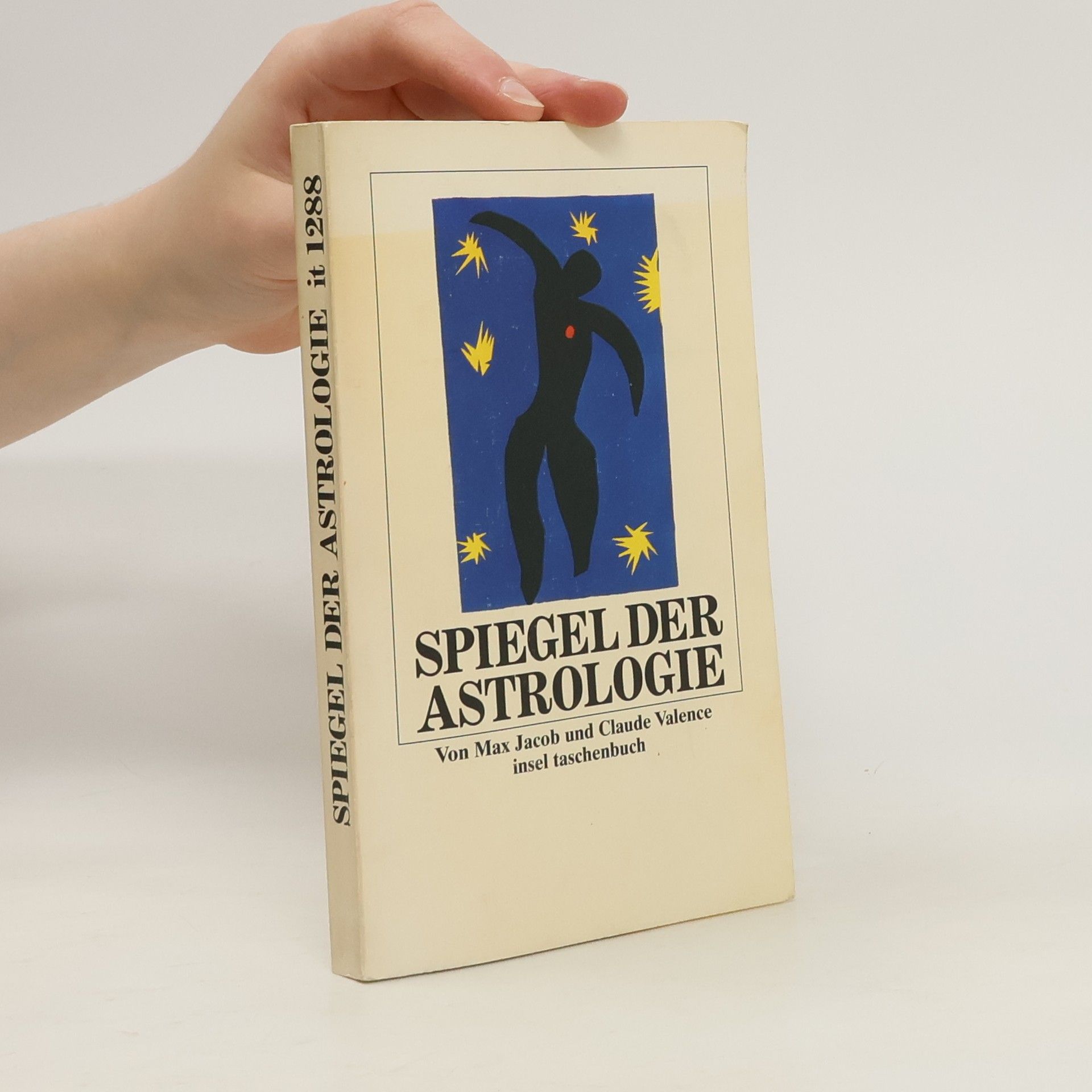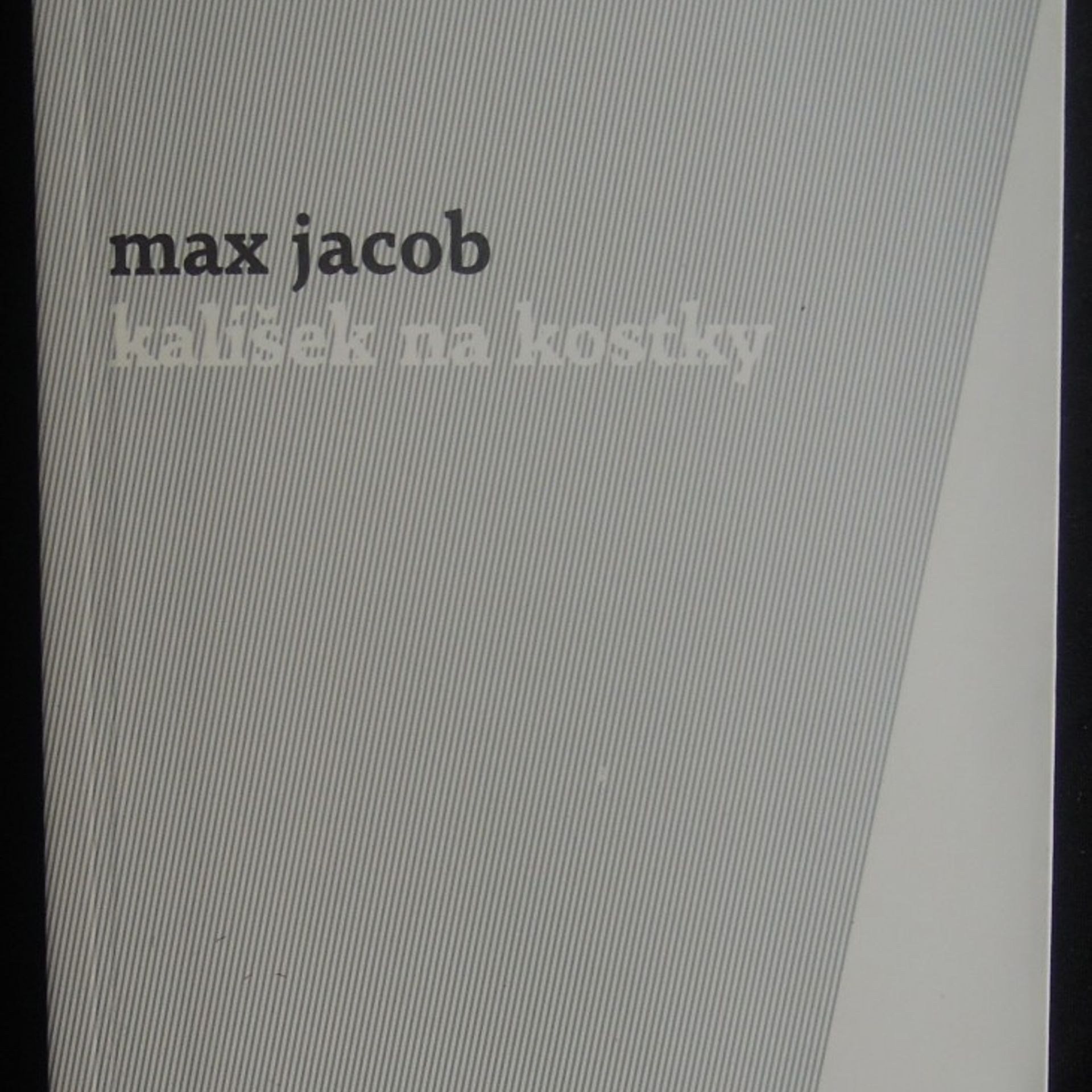If you head towards our sun (preferably at night) and remember to turn left you will find a pocket universe where evolution took a different turn. When the only sun cooled it went too far and no creature on the universe's sole planet without fur, wings, or, scales could possibly survive.
Max Jacob Books
Max Jacob was a pivotal figure in the Parisian avant-garde, renowned for his profound friendships with artists such as Pablo Picasso and Jean Cocteau. His artistic journey began after departing from the Colonial School, quickly immersing him in the vibrant artistic milieu. Jacob's influence extended to mentoring young artists and his camaraderie with Picasso notably inspired a famous artwork. His later life was tragically cut short by persecution and death in the Drancy internment camp, a somber end for an artist who significantly shaped modern art.







A translation of the first part of Le Cornet à dés. Max Jacob (1876-1944) was born in Quimper, Brittany, to a middle-class Jewish family. In Paris by the turn of the century, he worked at a variety of jobs, including department-store salesman, art crtic and piano teacher, before beoming part of the brilliant artistic and literary scene which revolved around Picasso and Apollinaire. In 1909 he saw a vision of Christ on a wall in the house where he was lodging, and was converted to Catholicism. After 1921, most of his life was spent away from Paris in the village of Saint-Benoît-sur-Loire, and it was here that he was arrested by the Gestapo in 1944,in his pension room, after Mass. He died of pneumonia in the transit camp at Drancy the day before his group was to be sent on to Auschwitz. Le Cornet à dés, written between 1904 and 1917 and first self-published in 1917, has long been regarded as the masterpiece among Jacob’s thirty or so books. Its prose poetry is by turns racy, punning, surrealistic, ironic and macabre. In its tension between fragmented form and a desire to contain the whole world, it catches a defining moment in twentieth-century art and literature which constitutes to reverberate in the criticism and aesthetics of our own time.
When Max Jacob published The Central Laboratory in 1921, the artistic landscape in Paris was in flux, with Cubism waning, Dada officially over, and Surrealism yet to emerge. Jacob's work captures this transitional moment, presenting a modern yet disjointed collection that defies traditional genres. It features a mix of operettas, folk songs, nonsense poetry, and playful puns, often prioritizing sound over meaning. Jacob shifts effortlessly between societal critique and mystical sincerity, remaining loyal only to his unique style. He employs symbolist references, cubist perspectives, Dadaist discontinuity, and a dreamlike logic that contrasts sharply with the emerging Surrealism. Drawing from nearly twenty years of creative exploration, Jacob crafts an array of "stoppered phials" in this tongue-in-cheek laboratory, each humorously mislabeled. The work exemplifies what Jacob termed his "art of disappointment," where reader expectations are subverted, leading to doubt and disorientation as poetic principles. Mixed signals and mocked allegory create a camp sensibility, reflecting the contradictions of Jacob's own life. A century after its French publication, the book remains an intriguing and peculiar work, overshadowed by Jacob's more renowned contemporaries and earlier writings. Jacob himself noted that it encapsulates two decades of experiences and styles.
Advice to a Young Poet: Conseils a un jeune poete
- 86 pages
- 4 hours of reading
Aus Liebe zum Spiel
Uli Hoeneß, das Geld und der deutsche Fußball | „Eine der besten Aufarbeitungen der Bundesligageschichte.“ Sven Voss
Uli Hoeneß prägte den deutschen Fußball wie niemand sonst Man liebt oder man hasst Uli Hoeneß, doch wer verstehen möchte, weshalb die Bundesliga ist, wie sie ist, kommt nicht um ihn herum. Max-Jacob Ost taucht ein in die Lebensgeschichte des Mannes, der wie kein zweiter den deutschen Fußball geprägt hat. Die Biografie von Hoeneß wirkt wie das Substrat aus den Schicksalen einer ganzen Mannschaft: Weltmeister. Europameister. Sportinvalide. Jüngster Manager. Titelsammler. Wohltäter. Steuerhinterzieher. Einziger Überlebender eines Flugzeugabsturzes. Millionär und Gefängnisinsasse. Es gibt Netflix-Serien, in denen weniger passiert. Ost hat vier Jahre lang das Leben des Uli Hoeneß und die Geschichte der Liga recherchiert, hat Interviews geführt mit Wegegefährten; Freunden und Gegnern von Hoeneß.
Saint Matorel
Roman
Eine Inkunabel des frühen 20. Jahrhunderts wird nun erstmals nach über einhundert Jahren mit den eigens für den Text geschaffenen Radierungen von Pablo Picasso präsentiert. Die Erstausgabe von 1911, erschienen bei Kahnweiler in Paris in nur hundert Exemplaren, zählt zu den Kostbarkeiten bedeutender Bibliotheken und erzielt auf dem Kunstmarkt hohe Preise im fünf- bis sechsstelligen Bereich. Dieser kleine Roman ist ein unveröffentlichtes Meisterwerk, das ein Zeugnis der frühen modernen Literatur und einen wichtigen Schritt in Richtung Surrealismus darstellt. Die Geschichte folgt dem etwas wirren Metroangestellten Victor Matorel, der sich zum Katholizismus bekehrt und als Bruder Manassé 19 Monate in einem Lazaristenkloster verbringt, bevor er "im Geruch der Heiligkeit" stirbt und zusammen mit seinem Freund Émile Cordier, ebenfalls zum Katholizismus bekehrt, auf einem Pferd durch die sieben Sphären zum Himmel aufsteigt. Der Roman, der viel Autobiografisches enthält, entfaltet sich nicht chronologisch und beginnt mit der Begegnung des Autors mit Matorel in der Metro, gefolgt von Matorels Tod und seinem Aufstieg. Max Jacobs Imitationstalent und die Fähigkeit, in andere Rollen zu schlüpfen, sind bemerkenswert. Der komplexe, burleske und poetische Text ist reich an theosophischen und mythologischen Anspielungen sowie Bildern. Die erste Veröffentlichung von 1911 in der Galerie Simon wird in der deutschen Ausgabe mit Picassos kubistisch
Nie wybieramy poezji: to ona nas odkrywa. Później usprawiedliwia swoje odkrycie przez wiersz, który nam wydziera. Cocteau ukazał mi Maxa Jacoba. Naprawdę, Cocteau otworzył przede mną uchylone drzwi, skrywające jeszcze Maxa Jacoba. Szukałem świata innego niż nasz, mówiłem o nim w upojeniu. Zlewał się z pokojem, nagim i czarnym, rozświetlanym przez słowa poety w stanie łaski. Mistrzu! powiedziałem wchodząc. Nie nazywaj mnie mistrzem odpowiedział. Nazywaj mnie przyjacielem lub Maxem Jacobem. To się zdarzyło w roku 1930. Pięć lat później przeżyłem identyczne chwile; obydwaj byliśmy wtedy rozbudzeni. Sny często bezczelnie zahaczają o przyszłość. Edmond Jabes
Spiegel der Astrologie
- 252 pages
- 9 hours of reading
Kniha básní v próze Maxe Jacoba je základním básnickým dílem francouzské literatury 20. století. Max Jacob, vynikající básník a přítel avantgardních umělců, do svazku shrnul 170 básní v próze, v nichž na sebe naráží ryzí lyrismus, slovní ekvilibristika a humor se svěží sensibilitou.Prvního vydání se sbírka dočkala v roce 1917, čtrnáct výtisků obsahovalo Picassův kubistický lept Harlekýna. Sbírka vyšla podruhé v nakladatelství Gallimard až v roce 1945, doplněna studií Michela Leirise, kterou naše vydání obsahuje též. V češtině nebylo Jacobovo dílo dosud příliš vydáváno. První, kdo Jacoba uvedl do české literatury, byl Karel Čapek ve Francouzské poesii nové doby. V roce 1929 vyšla v překladu Bohuslava Reynka Obrana Tartufova a v roce 1967 krátký, jedenáctistránkový Reynkův překlad textu Jezulátko. Nakladatel Rudolf Škeřík vydal v edici Prokletí básníci výbor z Jacobových textů přeložených Svatoplukem Kadlecem, ovšem z němčiny.


